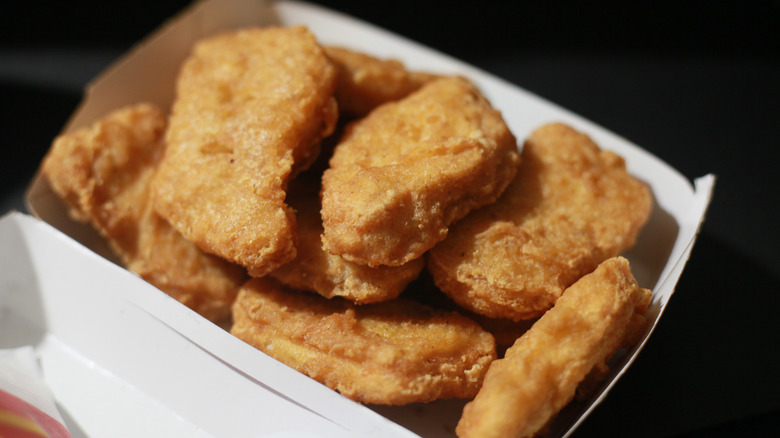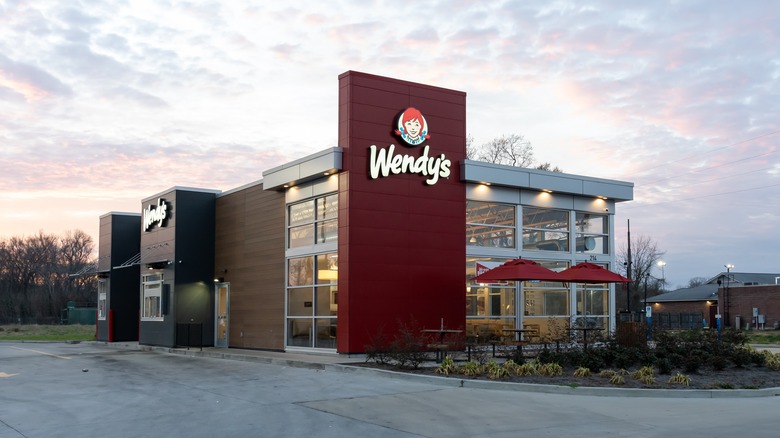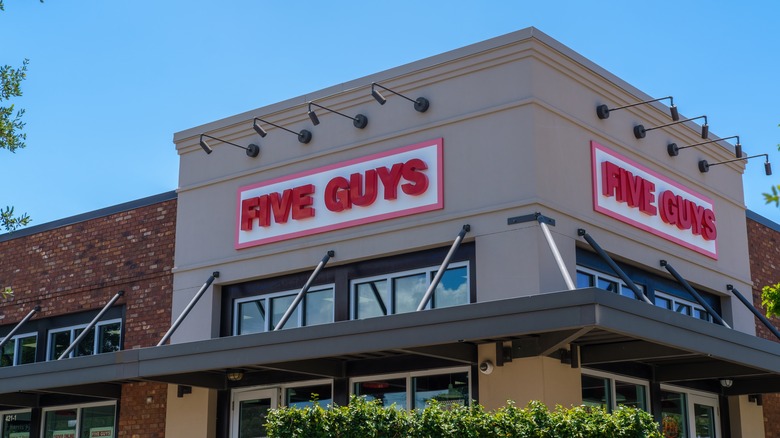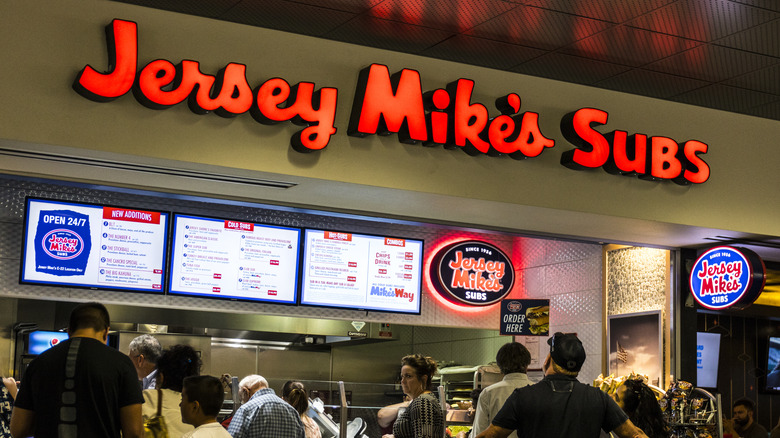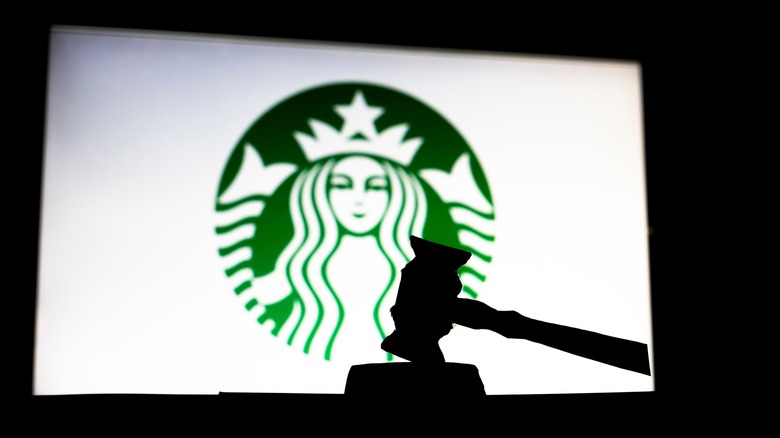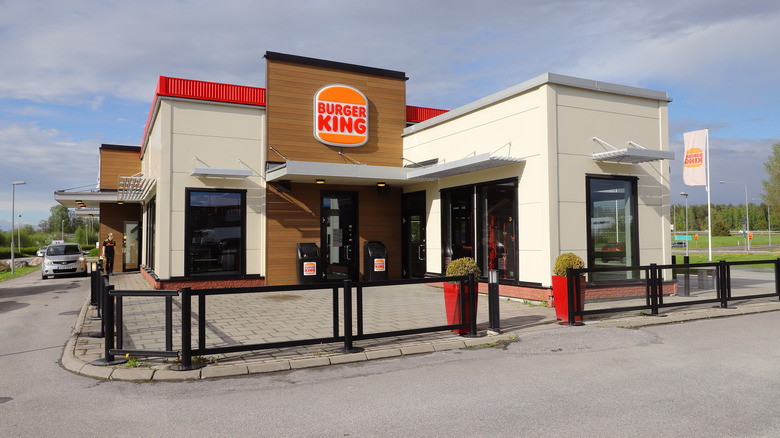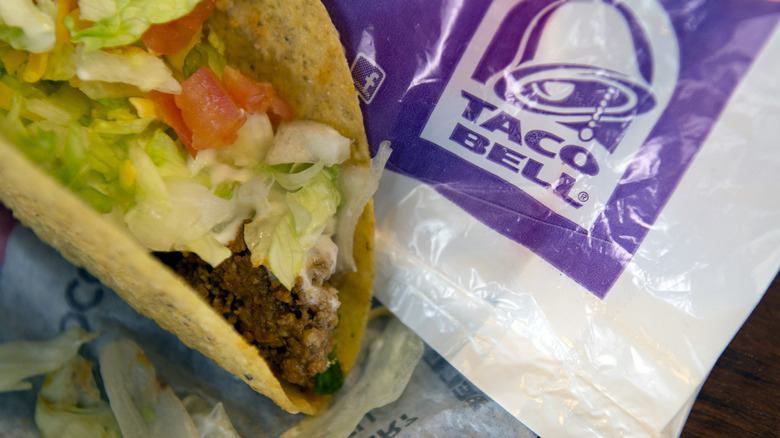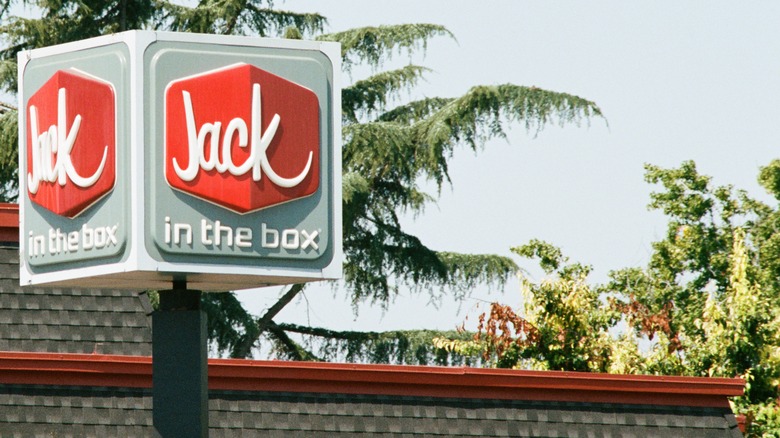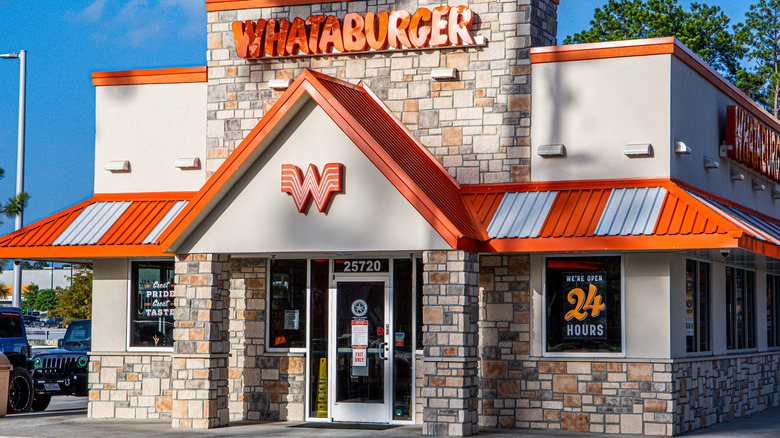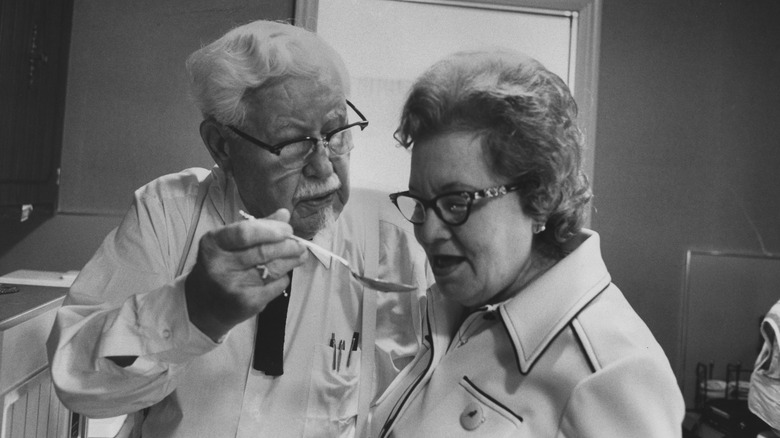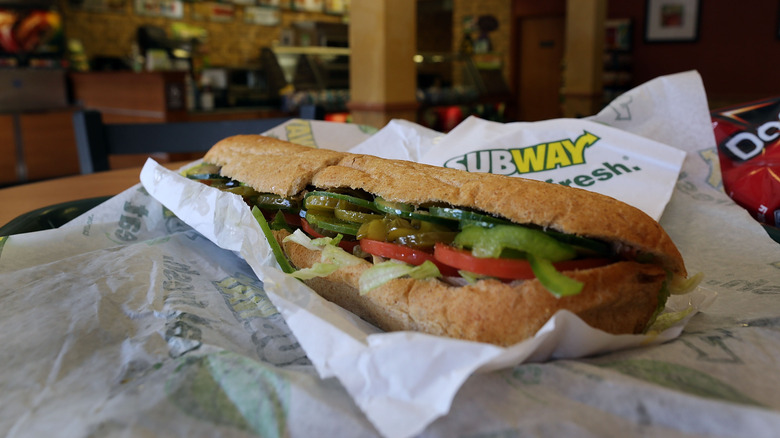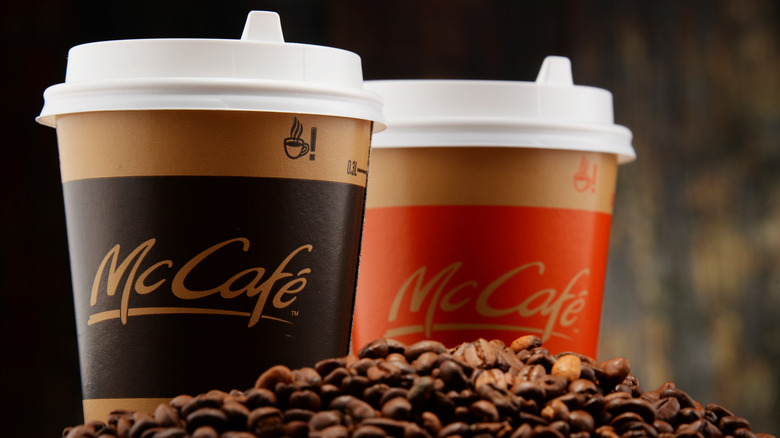15 Times Fast Food Chains Were Sued And What Was The Verdict
We often imagine a quick and convenient way to satiate our hunger when we think of fast-food restaurants. Rarely does it cross our minds that our visit might culminate in a significant, impactful legal dispute. Yet, several individuals have been embroiled in legal battles with these food giants over the years. From the simple yet harrowing experience of scalding beverages to more complex cases of misleading advertisements, the range of reasons is vast. Furthermore, while some confrontations have been between customers and companies, others involve employees challenging corporate policies or practices.
While a handful of these cases make waves, entering public discourse and even influencing policy or industry standards, many others remain under the radar, discreetly settled without much fanfare. But whether they grab headlines or pass quietly, each lawsuit reveals the intricate and often surprising challenges embedded within the fast-food industry, an industry many of us interact with daily.
McDonald's was sued over a hot chicken nugget
Chicken nuggets, a staple in fast food menus around the globe, have always been a hit with both the young and old. However, their delightful taste can sometimes overshadow potential hazards, especially if served too hot. Such was the case in an unfortunate incident involving McDonald's and a young girl named Olivia Caraballo.
Olivia experienced an alarming second-degree burn when a chicken nugget, freshly procured from McDonald's, was wedged between her thigh and seat belt. The sheer intensity of the burn raised questions about the serving temperature of the food. This incident spurred her concerned parents, Philana Holmes and Humberto Caraballo Estevez, to take legal action against McDonald's. Their lawsuit emphasized the lack of warning regarding the high temperature of the food item.
In its defense, McDonald's stated that the elevated temperature of the chicken nuggets was a precautionary measure designed to prevent potential salmonella poisoning, a valid concern for any food establishment. As the case progressed, while the family had originally sought a staggering $15 million in damages, they were eventually awarded $800,000.
Wendy's failed to follow state privacy law
Fast food restaurants don't always get sued by guests. In some cases, the company can be sued by its employees. One such compelling case involved the franchise owner of multiple Wendy's locations, All Star Management Inc. They integrated a fingerprint scanning system for their staff to clock in and out of their shifts efficiently. On the surface, it seemed like a modern solution for time management. However, beneath this technological advancement lay a potential breach of privacy.
The core of the subsequent lawsuit was to determine if All Star Management had diligently adhered to Illinois' stringent privacy laws during the implementation of this biometric system. Employees raised concerns, asserting they hadn't received written communication detailing their unique biometric data's collection, storage, and usage. Additionally, the company neither obtained written consent from its staff nor introduced or disseminated a data retention and destruction policy.
This oversight didn't go unnoticed in an industry where transparency is crucial. The culmination of the legal tussle saw employees being awarded a significant $5.85 million settlement. For a broader perspective on the scale of this oversight, All Star Management oversees as many as 39 Wendy's establishments throughout Illinois.
Five Guys didn't provide breaks
For the hard-working employees of fast-food chains, rest breaks are essential to recharge and provide consistent quality service. Five Guys, a beloved stop for cheeseburger aficionados, was under scrutiny for allegedly not providing its staff with breaks compliant with California labor laws.
The employees contended that for shifts lasting at least 5 hours, they should be entitled to a 30-minute unpaid meal break. Furthermore, for work periods surpassing 12 hours, another 30-minute unpaid meal break should be granted. And for every 4 hours of work, a 10-minute paid rest break should be in order.
While an initial settlement was brokered in October 2018, it was met with dissatisfaction from the staff, who believed the terms were inadequate. Fast forward to May 2023, and the situation reached a turning point. Five Guys employees secured the approval from a U.S. District Judge to endorse an agreement, promising each staff member up to $900 as compensation for the overlooked rest breaks.
Jersey Mikes must remove its no-poaching clause
Many might be surprised to learn that fast food chains sometimes employ no-poaching agreements designed to prevent franchisees within the same brand from hiring away each other's employees. One such establishment that utilized this tactic was Jersey Mike's. On the surface, this might seem like a strategic move to ensure stability within franchises. However, such agreements have been scrutinized for potentially limiting employees' opportunities and wages. Jersey Mike's was embroiled in controversy and legal troubles over this issue.
Attorney General Bob Ferguson, who had been actively working against such clauses, took the lead in challenging the practice. Jersey Mike's faced a lawsuit that could have been entirely sidestepped had they proactively eliminated this contentious clause. However, the company's insistence on retaining it paved the way for legal action. In the aftermath of the lawsuit, Jersey Mike's agreed to a settlement of $150,000. More importantly, they committed to abolishing the no-poaching clause from their franchise agreements.
Starbucks lost a discrimination lawsuit
In another instance of companies facing lawsuits from within their ranks, Starbucks became embroiled in a legal battle with one of its managers. The incident unfolded when Shannon Phillips, a regional manager in Philadelphia, found herself at the center of a controversy following the arrest of two black men at a Starbucks outlet.
Although Phillips played no role in the arrests, she was put in a challenging position when higher-ups instructed her to place a white district manager on administrative leave in the aftermath of the incident. Phillips was sure of the district manager's non-involvement in the regrettable episode, and, standing by her conviction, she refused the directive. Subsequently, Starbucks terminated her employment.
Feeling unjustly treated and alleging that her firing was rooted in discriminatory practices, Phillips took the coffee giant to court. Despite Starbucks' defense that her termination was based on performance issues, the court sided with Phillips. This landmark case concluded with Starbucks being held liable, and Phillips was awarded a staggering $25.6 million in damages.
Burger King pays for slippery floor
The familiar sight of yellow warning signs cautioning of wet and slippery floors in public establishments isn't merely for show. These signs play a crucial role in ensuring patrons' safety, and their absence can lead to significant consequences. A lawsuit against Burger King is a prime example of why such precautions are indispensable.
Richard Tulecki, while visiting a Burger King branch in Hollywood, Florida, suffered a life-altering mishap. Unaware of the slippery bathroom floor, he took a serious fall. This accident didn't just result in immediate physical harm; it required surgical intervention and, unfortunately, rendered him unable to continue his work.
Tulecki's legal representatives emphasized how the incident had profoundly affected him. Work wasn't just a means of income for Tulecki; it was integral to his self-worth and identity. The repercussions of the fall were not just financial but deeply emotional as well, adding layers to his trauma.
The court recognized the negligence on the part of the restaurant. Despite any defense they might have offered, Burger King was deemed responsible for the oversight. The legal battle culminated in Tulecki being awarded a substantial settlement of $7.81 million.
Taco Bell's meat was once much more mysterious
Many Taco Bell aficionados might have noticed a distinctive taste of the beef in their favorite dishes, different from the homemade beef preparations they're accustomed to. This unique flavor became a bone of contention when plaintiffs challenged the fast-food giant, alleging that the product Taco Bell advertised as "beef" contained merely 35% real beef.
Taco Bell embarked on an aggressive marketing campaign to defend its product and brand integrity in response to these allegations. The campaign, which reportedly cost around $4 million, was aimed not just at refuting the claims but also at educating the public about the ingredients of their beef product. To bring transparency to their side of the story, Taco Bell disclosed the constituents of its ground beef: a blend of real beef, water, a proprietary seasoning mix, salt, and sodium phosphates.
By openly sharing their recipe and ardently standing by the quality and authenticity of their product, Taco Bell aimed to regain consumer trust. Their vigorous defense and outreach bore fruit when the plaintiffs eventually withdrew their lawsuit. Remarkably, throughout this ordeal, Taco Bell's recipe remained unchanged, demonstrating the chain's confidence in its product and commitment to its customers.
Jack In the Box experienced an E coli outbreak
In 1993, a grave E. coli outbreak tied to Jack in the Box hamburgers shook the fast-food industry to its core, leading to profound changes to the way food recalls work. As the news broke, the popular fast-food chain found itself under a storm of scrutiny. Although Jack in the Box initially resisted acknowledging complete responsibility for the incident that affected nearly 400 individuals, subsequent investigations compelled them to admit that their burgers were indeed the culprits behind the outbreak.
Recognizing the severity of the situation, the chain immediately suspended hamburger sales, initiated a large-scale meat recall, and increased their cooking temperatures to ensure pathogens were effectively killed. Beyond these immediate measures, Jack in the Box also took it upon themselves to address the medical expenses arising from the outbreak.
One particularly harrowing account from the outbreak was that of a 9-year-old, Brianne Kiner. Infected by the tainted meat, Kiner's condition deteriorated to such an extent that she slipped into a coma. While the medical team had little hope for her recovery, she miraculously pulled through, though not without enduring permanent health repercussions from the infection.
Representing Kiner in court was William Marler, a tenacious lawyer who championed her cause. Not only did he secure a settlement of $15.6 million for Kiner, but he also spearheaded a class-action lawsuit against Jack in the Box. This collective legal endeavor culminated in an overwhelming $50 million settlement.
Whataburger makes some hot pie
While Whataburger is predominantly known for its savory burgers, the chain also occasionally has pies on the menu. Renee Cronemeyer, hoping to relish a hot lemon pie from Whataburger which was part of the menu at the time, unfortunately, experienced an incident that led to a legal altercation.
Despite the cautionary label on the pie carton explicitly warning of the pie's high temperature, Cronemeyer chose to dig in. To her dismay, she found the pie exceptionally hot, leading to an injury. Believing that the warning was insufficient or perhaps underestimating the actual temperature based on her past experiences with hot food, she pursued legal action against Whataburger, hoping to hold them accountable for her injury.
However, the case did not sway in her favor. The presence of a clear warning label on the packaging and Cronemeyer's own admission that she had seen and consciously disregarded it solidified Whataburger's defense. The court ruled in favor of the fast-food chain, emphasizing the importance of heeding cautionary labels.
KFC was sued by Colonel Sanders
Many KFC enthusiasts might be intrigued to learn that Colonel Harland Sanders, the iconic founder of KFC, once sued the very company he established. After dedicating years to building the brand and perfecting his renowned fried chicken recipe, Sanders sold the company. However, he soon became disillusioned with the direction in which the new owners were steering his beloved brand.
In 1971, Heublein acquired KFC. Almost immediately, Sanders' disapproval of management decisions intensified. Passionate about preserving the authenticity and quality of his recipes, Sanders, along with his wife, launched a new restaurant named "Claudia Sanders Dinner House."
Sanders believed that Heublein was interfering in this new business venture, so in retaliation, he sued Heublein for a staggering $122 million, alleging that they were attempting to sabotage his new venture. In the end, the legal feud didn't reach a courtroom climax. Both parties settled out of court, with Sanders receiving $1 million and a unique condition: he would train the new KFC management team, ensuring that they upheld the cooking standards he originally set.
Subway win lawsuit over sub size
Subway, the renowned sandwich chain, faced a class-action lawsuit that was ultimately dismissed, with the court suggesting the suit seemed more advantageous for the attorneys than for the purported class of aggrieved customers. The U.S. 7th Circuit Court of Appeals in Chicago went so far as to describe the legal action as a "worthless" suit.
This lawsuit emerged amidst a wave of negative publicity for Subway. The controversy ignited when various customers began alleging discrepancies in the sandwiches' length. These sandwiches, widely advertised as footlong, were measured by some customers and found to be somewhat shy of the full 12 inches. This discrepancy became the focal point of the lawsuit, aiming to hold the company accountable for potentially misleading marketing.
However, as the case unraveled, it became apparent to the court that the tangible benefits to the class, if any, were minuscule compared to the potential legal fees to be accrued by the attorneys. This disparity in benefits led to the case's eventual dismissal.
Jimmy John's missed the sprouts
When dining at a fast-food establishment, one often scans the menu looking for a flavorful and nutritionally appealing dish. Ingredient lists play a pivotal role in this decision-making process, guiding patrons toward a choice that aligns with their dietary preferences or needs.
Heather Starks' visit to Jimmy John's revolved around one such ingredient: alfalfa sprouts. However, her experience took an unexpected turn when she discovered her sandwich was missing this key component, despite it being prominently advertised on the menu. Feeling misled, Starks pursued legal action against the sandwich chain, alleging false advertising. Her claim centered around the premise that customers, like her, were drawn to specific menu items based on the ingredients advertised, and any deviation from this promise could be seen as a breach of trust.
After the lawsuit, Starks was awarded $5,000 in damages. Additionally, her legal fees were covered by the defendant. Recognizing the potential extent of the oversight, Jimmy John's also proactively offered compensation to other affected customers. Those who had similarly missed out on their promised alfalfa sprouts were granted a $1.40 restitution.
McDonald's pays big for hot coffee
One of the most infamous lawsuits involving a fast-food chain is the hot coffee case against McDonald's. This case received significant media attention, often sparking debates on the merits and excesses of the American legal system.
In this lawsuit, Stella Liebeck suffered third-degree burns after spilling a McDonald's coffee on her lap. The severity of her injuries was alarming; the burns covered approximately 16% of her body, necessitating hospitalization, and painful skin grafts to treat. Initially, Liebeck sought a modest $20,000 from McDonald's to cover her medical expenses and associated costs. However, as the trial progressed, it was revealed that McDonald's routinely served its coffee at a temperature significantly higher than many other establishments, making it dangerously hot and more likely to cause severe burns upon contact with the skin.
Given these revelations, the jury awarded Liebeck $200,000 in compensatory damages and a substantial $2.7 million in punitive damages. However, this amount was later reduced, and the final settlement was negotiated to approximately $500,000.
Sweetgreen renamed its burrito bowl
Fast food companies face lawsuits from customers or employees and occasionally from each other, as evidenced by the dispute between Sweetgreen and Chipotle. To protect its brand identity, Chipotle raised concerns over Sweetgreen's Chipotle Chicken Burrito Bowl. Chipotle argued that the name was a potential trademark infringement, positing that customers could easily confuse one brand's offering with the other's due to the naming similarity, even if Sweetgreen was simply attempting to branch out from salads.
Understanding the implications and possibly wishing to avoid a protracted legal battle, Sweetgreen acted swiftly. Without contesting the claim or altering the dish's ingredients, Sweetgreen promptly agreed to rename its burrito bowl to Chicken + Chipotle Pepper Bowl. This swift response underscores the importance of brand identity in the fast-food industry, where a name can carry significant weight in marketing and customer recognition, even if the word Chipotle could refer to pepper as much as it could a company name.
Taco Bell accused of creating disappointing pizza
Taco Bell, known predominantly for its taco offerings, has a dish that enjoys cult-like adoration: the Taco Bell Mexican Pizza. In 2020, the beloved menu item was briefly discontinued due to supply chain issues, much to the dismay of its fanbase. However, in 2022, it made a much-celebrated return.
Yet, this triumphant comeback has not been without its challenges, and the brand is even facing a lawsuit over falsely advertised beef fillings. Frank Siragusa has initiated a lawsuit against the brand, seeking $5 million in damages. If successful, this money would ultimately be distributed among Taco Bell customers in New York State. With the lawsuit's resolution still pending, Taco Bell now faces a choice: either halt the sale of the Mexican pizza or adjust its advertising to portray the product more accurately. However, given how thrilled Taco Bell fans were when this pizza returned, we imagine the outpouring of sorrow would be intense if this menu item disappeared again.

